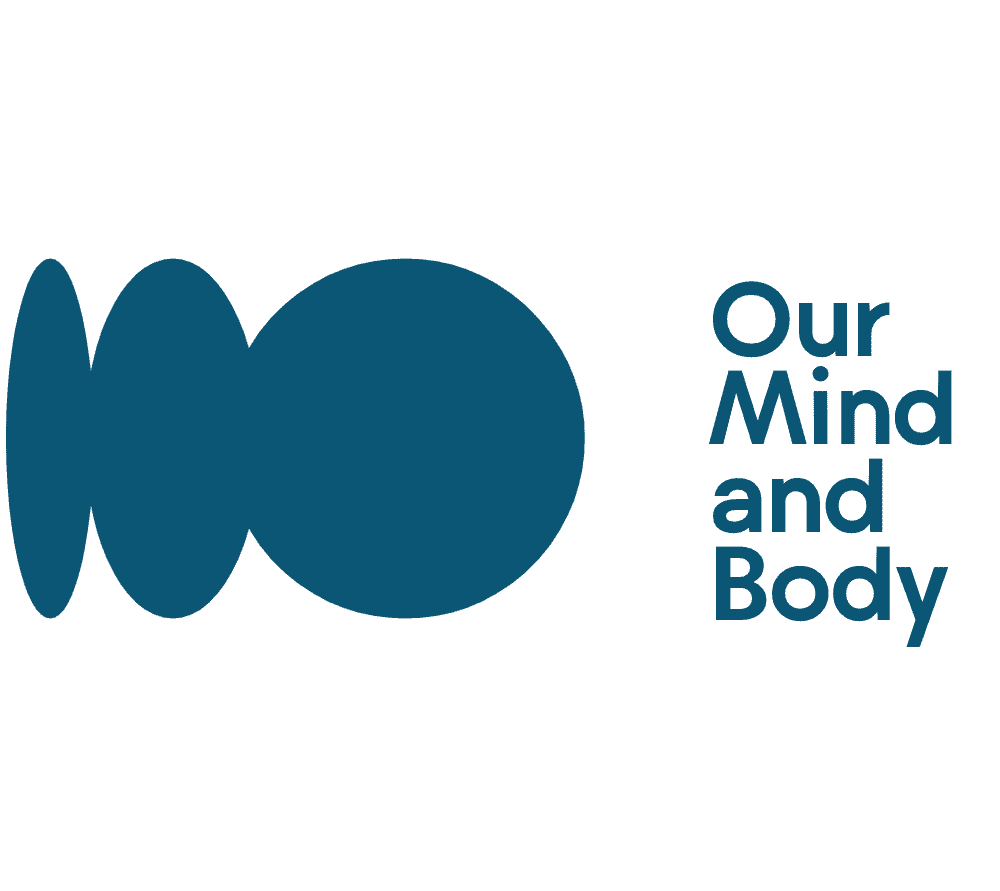Inspiration
Hard Truth – The Only Opinion About And Validation About Yourself That Matters Is Yours

Recognizing and accepting oneself can be a difficult concept to understand and put into practice. It involves acknowledging and appreciating the fact that the most crucial perspective of oneself is one’s own.
This means not relying on other people’s opinions and instead learning to acknowledge one’s achievements, celebrate successes, focus on strengths, seek support from others, and practice positive self-talk.
Taking steps to overcome self-doubt and build self-esteem are essential for allowing individuals to recognize their own value regardless of what others may think or say about them.
Understanding Self-Validation
A comprehensive understanding of self-validation is necessary to effectively assess one’s own worth. Self-validation is about acknowledging our fears, forming habits and beliefs that serve us, and making decisions that are in line with our values and goals. It’s an internal process that requires time, effort, patience, and practice to develop into a healthy habit.
This means regularly checking in with ourselves to assess how we’re doing mentally and emotionally by taking the time to ask questions such as: What is making me uncomfortable? What am I avoiding? How can I better serve myself today?
By answering these questions honestly, we can start to gain clarity on what our true needs are and take actionable steps towards fulfilling them. We can also identify limiting beliefs or patterns of behavior that do not support us and make conscious efforts to change them for the better.
Furthermore, self-validation helps us recognize when it’s time for us to take a break from external pressures or sources of stress so we can create space for ourselves to recharge.
Ultimately, knowing when it’s time to turn inward allows us to become more aware of our thoughts and feelings which will ultimately lead us towards developing healthier perspectives on self-worth. From here we can move forward feeling empowered by the fact that our opinion is the only validation we need – no matter what anyone else says or thinks.
With this knowledge in mind, transitioning into why self-opinion is the only opinion that matters becomes a natural next step for further exploration.
Why Self-Opinion Is the Only Opinion That Matters
Recognizing one’s own worth is essential in order to foster self-opinion, as it allows individuals to understand their value and potential.
Building self-confidence is a crucial step in the process of forming an opinion about oneself, as it allows for increased trust in one’s decisions and capabilities.
Lastly, trusting oneself is paramount when it comes to creating a positive self-opinion, since it provides assurance that the individual’s thoughts and values are valid.
Recognizing Your Own Worth
Acknowledging one’s own value is essential to understanding and accepting the validity of their beliefs.
Acknowledging limitations and trusting intuition can be difficult tasks, as it can be hard to recognize personal worth when presented with external influences that may not reflect an accurate depiction of oneself.
It is important to step back from outside pressures and look within to determine true feelings about yourself.
Here, it is possible to build a strong sense of self-confidence based on knowledge of who you are and what you stand for.
This process requires dedication and patience in order to understand your strengths and weaknesses, but the resulting confidence will provide an invaluable foundation for growth.
Moving forward, this newfound self-esteem can be used as a platform for greater personal development and success.
Building Your Self-Confidence
Cultivating self-confidence can be an arduous yet profoundly rewarding endeavor, providing a powerful platform for personal growth and success. Self-confidence is achieved by:
-
Fostering positivity: Identifying the aspects of ourselves that we appreciate, as well as our successes, helps to bolster feelings of worthiness and pride. Taking time to recognize the unique strengths that we bring to the table allows us to feel more assured in our abilities and decision-making.
-
Dismissing criticism: Learning to silence inner voices of negativity or external criticism can help us develop a stronger sense of self-respect and acceptance. Instead of focusing on areas where improvement is needed, it is important to pay attention to what makes us unique and special.
This will create a more secure foundation from which we can take on new challenges with greater assurance.
By trusting ourselves and our decisions, we are able to move forward with courage and conviction knowing that whatever happens will ultimately be part of our journey towards achieving true happiness and fulfillment.
Trusting Yourself and Your Decisions
Trusting one’s own judgement is essential in order to confidently move forward, allowing for a greater sense of satisfaction and success.
Being mindful of your feelings and thoughts and engaging in self-reflection are key components when it comes to making decisions.
It requires an individual to take time away from others and have the courage to trust their intuition; this can be especially challenging if you’ve been relying on other people’s opinions for validation.
Taking ownership of the choices made, whether good or bad, can help build confidence by learning from mistakes as well as successes.
To rely solely on oneself for decision making leads to greater clarity about who you are and what you want out of life, which ultimately allows you to create a more meaningful existence.
Relying on Other People’s Opinions
Evaluating the influence of other people’s opinions on one’s sense of self is an important aspect of relying on external perspectives. It is common for individuals to be impacted by their environment, and many times these influences can become deeply ingrained in how a person views themselves. When it comes to internalizing outside opinions, it is essential to take into account potential triggers that may be at play and understand what patterns have been formed from past experiences. It is only through acknowledging these things that a person can begin to recognize when they are being influenced by other people’s thoughts and work towards breaking those patterns in order to trust their own judgement.
It is equally important to understand the value of positive feedback from others as well as the importance of self-validation. Acknowledging achievements both big and small can help build confidence in your abilities and decisions, allowing you to create a more meaningful connection with yourself rather than relying solely on external approval.
Additionally, recognizing when compliments or praise don’t feel genuine can also give insight into how you relate with yourself. Taking note of any inner criticism or negative thought patterns allows for more conscious effort towards changing them down the line.
Ultimately, while understanding other perspectives has its place in life, trusting your intuition should always remain paramount. Finding ways to recognize individual strengths can provide clarity during difficult situations – so that even if there isn’t agreement from external sources, there will still exist an intangible faith within oneself that will never waiver no matter what someone else might say or think about you. Moving forward with this knowledge arms us with the strength needed to keep moving ahead despite any adversity we may face along our journey; because at the end of day we ultimately know that our opinion about ourselves matters most.
Acknowledging Your Achievements
Acknowledging successes, both major and minor, can contribute to increased confidence in one’s decision-making process and create a more meaningful connection with the self. Learning to recognize personal victories is an important part of self-validation: it allows individuals to acknowledge their limitations while validating feelings of accomplishment. By celebrating achievements, we can gain a better understanding of our worth as well as develop healthier habits that lead to future success.
Here are some key points to consider when acknowledging your successes:
- Take time to reflect on accomplishments – look back at what you achieved and how far you’ve come
- Acknowledge progress no matter how small – even if it doesn’t seem like much, making any sort of progress is something to be proud of
- Reward yourself for effort expended – reward yourself for putting in the work and for taking steps towards achieving your goals
Valuing our own successes helps us become aware of our potential and strengths. It also encourages us to keep going when faced with difficult tasks or situations, giving us the motivation and drive needed to push through challenging times. Celebrating our triumphs strengthens our resilience and provides validation that comes from within – ultimately providing us with a sense of control over our lives which can further enhance our overall wellbeing.
Celebrating Your Successes
Celebrating successes can lead to increased self-confidence and a sense of control over one’s life, fostering healthier habits that result in further success. Honoring accomplishments can be done through various practices such as recognizing achievements with tangible rewards, verbal praise or simply taking time to recognize the accomplishment internally. Surrounding oneself with positivity, like celebrating successes with friends and family, is also an important step in the journey towards establishing a strong foundation for personal growth. Additionally, it’s important to remember that validation from others should not be used as a measure of one’s own value – instead, self-validation should be prioritized by honing in on one’s own perceptions of their accomplishments.
The following table outlines some key insights into how honoring and celebrating successes can help build confidence and foster healthy habits:
| Honoring Accomplishments | Surrounding Yourself With Positivity | |
|---|---|---|
| 1 | Recognition with rewards/praise | Celebrate successes with loved ones |
| 2 | Acknowledge achievements internally | Spend quality time with people who support you in your endeavors |
| 3 | Focus on your own perceptions of success rather than seeking outside validation | Practice gratitude for what has been achieved so far! |
Taking part in these practices will help create an environment where individuals are able to take pride in their hard work and effort without relying heavily on external sources for validation. By engaging in activities that honor our accomplishments we start down the path towards self-care which will ultimately lead to achieving greater successes.
Practicing Self-Care
Taking care of oneself is often said to be the best form of self-love; and by investing in our own well-being, we can unlock greater potential for success.
Practicing self-care is an invaluable way to promote mental and physical health, while also addressing the fear that may come with accepting criticism. This can be done through simple activities, such as taking a walk or enjoying a calming cup of tea.
Additionally, seeking out activities that cause us to confront our fears – such as public speaking or attending social events – can provide us with more confidence in recognizing and overcoming challenges.
Engaging in practices like these helps to create a sense of stability and inner peace despite any external disruptions; allowing us to focus on our individual strengths instead of ruminating on weaknesses.
As we move forward with this practice, it will become easier to recognize when it’s time for self-care and how important it is for maintaining balance within ourselves.
Transitioning into focusing on our strengths will allow us to take pride in what we have accomplished and remain mindful of healthier ways of operating going forward.
Focusing on Your Strengths
After taking the time to practice self-care, it is important to focus on your strengths in order to foster resilience. It can be difficult to recognize our own potential, but it is essential for personal growth and development.
To this end, a few strategies are helpful in focusing on one’s strengths. First, engaging in positive self-talk helps us reflect on all of our accomplishments and successes. This can be done through journaling, or simply by speaking out loud about all of the things we do well.
Secondly, surrounding oneself with supportive people who may offer constructive feedback and help build up confidence can be beneficial as well.
Finally, developing new skills that align with existing strengths can also contribute to building up resilience and recognizing potential. Taking inventory of one’s personal characteristics and traits can be an effective way to identify areas where further strength and potential exists within ourselves.
Fostering resilience through this process will provide the necessary foundation for pursuing new goals while seeking support from others going forward.
Seeking Support from Others
Recognizing the importance of receiving external validation and support from others can be essential in developing resilience. It is not always easy to admit when one needs help, and it can also be difficult to ask for it.
Seeking advice and assistance from those who are experienced in dealing with similar situations, or even just talking through our problems with someone who will not judge us, can help us gain a better understanding of our own situation. This kind of support allows us to take stock of our strengths and weaknesses so that we may make informed decisions about how best to move forward.
It is important to remember that seeking help does not mean giving up control over our lives; rather, it provides additional resources which can enable us to make informed decisions about what course of action is right for us. Friends, family, professionals such as counselors or therapists – these are all sources of outside advice which can offer insight into areas where we feel stuck or uncertain.
By recognizing the need for external validation and seeking assistance when necessary, we can build the confidence needed to accept ourselves as we are while still having enough courage to strive towards self-improvement by focusing on positive self-talk and taking constructive action steps.
Having realistic expectations regarding what support from others looks like is key; it should never be viewed as a replacement for personal responsibility nor become a crutch which prevents one from growing into their full potential. With this in mind, cultivating an understanding of how helpful guidance from others may enhance our self-perception is integral in helping us recognize that the only opinion about and validation about ourselves that truly matters comes from within –and practicing positive self-talk accordingly.
Practicing Positive Self-Talk
Developing an understanding of the importance of positive self-talk can lead to increased confidence and resilience. By embracing vulnerability, we can combat criticism from outside sources and begin to craft our own inner voice into one that is supportive and understanding.
Positive self-talk is a way for us to recognize our strengths, celebrate our successes, and move forward with courage in spite of any shortcomings or mistakes. It’s often easier said than done; however, when we become aware of how our thoughts shape our feelings and behavior, we are better equipped to practice positive self-talk as a way to improve our mental health and wellbeing.
Self-criticism is often rooted in fear or insecurity and can be deeply detrimental if it goes unchecked. Learning how to break free from destructive thought patterns requires effort but can be rewarding in the long run. We may start by recognizing negative thoughts as they arise, not attaching judgmental labels such as “bad” or “wrong”; instead allowing ourselves the space to accept them without judgment before replacing them with more balanced statements that are kinder yet realistic.
With regular practice, this type of cognitive reframing will help us gain greater control over our emotions so that we have a healthier outlook on life overall.
By taking time for self-reflection and actively engaging in activities that bring joy and purpose into our lives, we move closer towards creating healthier perspectives about ourselves that are more aligned with reality rather than overly harsh judgments based on expectations from society or other people’s opinions.
This mindfulness exercise offers an opportunity for us to challenge old beliefs while also building up more beneficial habits which allow us to overcome self-doubt while simultaneously cultivating greater self-esteem within ourselves.
Overcoming Self-Doubt and Building Self-Esteem
The practice of positive self-talk is an important step in the journey of gaining confidence and knowing one’s worth, but it is not enough. As much as positive self-talk can help to build self-esteem, it does not address the underlying doubt or insecurity that often keeps individuals from truly believing in themselves.
To truly understand their own value and importance, individuals must go beyond simply saying nice things about themselves and look at how to overcome self-doubt and build their self esteem.
One key element in overcoming self-doubt is embracing vulnerability. It can be easy to fall into a cycle of negative thinking when faced with difficult emotions such as fear or anxiety, but allowing oneself to feel vulnerable provides an opportunity for growth and progress. This vulnerability gives individuals the chance to accept their own imperfections while also recognizing they are capable of overcoming them. By facing these challenges head on, they can learn more about themselves and gain a greater sense of control over their lives rather than letting fear dictate their future choices.
In addition to embracing vulnerability, it is important for individuals to take steps towards overcoming insecurity. Overcoming insecurity involves being aware of one’s own strengths and weaknesses without comparing oneself too harshly to others around them or trying to live up to unrealistic expectations set by society. It means learning how best utilize existing skillsets instead of getting caught up in what may seem like shortcomings or shortfalls which can give rise feelings of inadequacy or envy if left unchecked.
Individuals should remember that everyone has flaws; what matters most is focusing on developing those strengths so that we are able move past any feelings of inadequacy towards feeling secure in ourselves and our abilities.
By taking proactive steps towards understanding our true worth through embracing vulnerability and overcoming insecurity, we can start down the path towards building our self-esteem based upon our own opinion rather than relying on outside validation which will ultimately allow us find true contentment within ourselves.
Frequently Asked Questions
How can I learn to rely on my own opinion instead of external validation?
Learning to rely upon one’s own opinion instead of external validation is a process that requires overcoming doubt and building confidence. Self-trust is essential in this endeavor, as it allows an individual to make decisions based on their values, beliefs, and experiences rather than being influenced by the opinions of others.
To cultivate self-trust, it is important to focus on what one believes in and become comfortable with making decisions without relying on external validation or approval. A strong support system can also be beneficial as it helps reinforce one’s belief in themselves while they gain confidence to make independent decisions.
Ultimately, learning to trust oneself takes time and persistence but can lead to greater satisfaction in life when achieved.
How can I stop comparing myself to others?
The proverbial ‘grass is always greener on the other side’ idiom is especially true when it comes to comparing ourselves to others.
We can easily fall into a trap of self-doubt and insecurity by trying to measure up to people around us, often forgetting that personal growth lies in self-acceptance.
By recognizing our own individual strengths and weaknesses, we can develop empathy toward ourselves, allowing us to focus on our own journey rather than comparing it with someone else’s.
This will help us build a healthier relationship with ourselves, helping us become more confident in who we are and placing emphasis on the only opinion that truly matters – our own.
What are some good strategies for practicing self-care?
Practicing self-care is an important part of maintaining mental health and promoting self-love. There are many strategies for developing and implementing a successful self-care routine. Examples of these strategies include:
- Engaging in activities that bring joy
- Investing time into relationships with friends and family
- Carving out time to relax
- Setting boundaries for yourself and others
- Focusing on positive thinking
- Being mindful of the present moment
- Incorporating physical activity into your daily life
- Eating nutritious meals
- Getting enough sleep each night
- Avoiding substances like drugs or alcohol that can be harmful to your health
- Meditating or practicing yoga regularly.
All of these practices have been found to contribute positively to overall wellbeing.
How can I learn to recognize and celebrate my successes?
Recognizing and celebrating successes is an important yet challenging task. It involves challenging doubts and embracing wins, which can be difficult if we are not used to doing so.
To learn to do this more effectively, one should begin by taking a step back to assess their accomplishments objectively. This may involve creating a list of successes or positive moments in the past week, month, or year.
Once the list is created, take time to celebrate each accomplishment in some way that works best for you; this could be through verbal affirmations or small rewards like a dinner out with friends or family.
Doing this regularly can help us develop greater self-appreciation and better recognize our own achievements.
How can I stop feeling guilty for enjoying my achievements?
Feeling guilty for enjoying our own accomplishments can be a difficult emotion to shake off. However, by leaning into our successes and creating healthy boundaries around them, we can learn to recognize and celebrate our achievements without feeling undeserving or inadequate.
It is essential to remember that the only opinion about ourselves that truly matters is our own, so instead of questioning whether or not we deserve success, we should aim to foster an attitude of self-affirmation and gratitude for all that we have accomplished.
This shift in perspective allows us to take ownership of our successes while maintaining a sense of humility and respect for others.
Conclusion
Self-validation is an essential part of life, as it allows individuals to recognize their accomplishments and celebrate their successes. It can be difficult to rely solely on one’s own opinion when the opinions of others are so readily available.
However, understanding that self-opinion is the only validation that truly matters can help build self-esteem and confidence in oneself. Additionally, by practicing positive self-talk, seeking support from others, and recognizing one’s strengths, individuals can cultivate a healthier outlook about themselves.
While this may seem like a difficult task for some people, with dedication and commitment anyone can learn to trust in their own opinion above all else.
Objectors may argue that this is easier said than done; however with practice and consistent effort it is possible to make the hard truth of trusting your own opinion more achievable.
Meet Kalinda, the passionate and visionary Editor-in-Chief of OurMindAndBody.com. Kalinda is a beacon of light in the realm of holistic well-being, and her mission is to positively impact the lives of others by inspiring them to embrace a healthier and more fulfilling lifestyle.
With a deep-rooted love for meditation, yoga, and spirituality, Kalinda’s journey toward self-discovery and personal growth started at a young age. She found solace and strength in these practices, which not only helped her cope with the challenges of life but also provided her with a profound sense of purpose. Eager to share the transformative power of these ancient disciplines, Kalinda embarked on a path to spread awareness and understanding.
Inspiration
Unveiling The Depths Of Spiritual Warfare

Spiritual warfare is a complex battle with various challenges and strategies at different levels. Essentially, this battle is against evil forces led by Satan, whose aim is to shake our faith and hinder our relationship with God.
In this article, we will delve into the depths of spiritual warfare, exploring the various levels of attack, strategies to overcome the devil, and effective ways to fight against spiritual attacks.
By understanding the nature of this battle and equipping ourselves with the right tools, we can navigate this spiritual warfare and align ourselves with God’s will.
Key Takeaways
- Spiritual warfare involves battling against Satan’s forces and can consume individuals who are not properly aligned with God’s purposes.
- There are three levels of spiritual warfare: flesh, devil, and worldly powers, with the highest level being level 3.
- The devil seeks to deceive, tempt, and destroy, but believers can overcome him through prayer, fasting, scripture reading, and maintaining a personal relationship with God.
- Effective strategies to combat the devil and engage in spiritual warfare include establishing a relationship with God through communication and obedience, engaging in activities that please God, and surrounding oneself with positive influences such as uplifting music and spiritual fellowship.
Levels of Spiritual Warfare
I think it’s important to understand the levels of spiritual warfare in order to effectively combat these battles. By recognizing spiritual attacks, we can better equip ourselves to fight back.
The levels of spiritual warfare include the flesh, devil, and worldly powers. The flesh level involves tangible battles that we face in our physical bodies and circumstances. The devil level focuses on the external enemy, Satan, who seeks to deceive and destroy. Lastly, the worldly powers level encompasses attacks on our faith and belief systems by societal influences.
Spiritual armor plays a crucial role in defending against these attacks. To combat these battles, we must arm ourselves with prayer, faith, and the word of God.
By staying vigilant and aware of the different levels of spiritual warfare, we can effectively overcome and align ourselves with God’s will.
Strategies Against the Devil
Establishing a personal relationship with God through communication and obedience can be a powerful strategy to overcome the devil’s temptations and deceptions.
In the midst of spiritual warfare, it is crucial to equip ourselves with spiritual armor to withstand the attacks of the devil.
Prayer, in particular, is a potent weapon that allows us to communicate with God and seek His guidance and strength.
Through prayer, we can overcome the devil’s attempts to deceive and tempt us, as we draw closer to God and align ourselves with His will.
Prayer not only strengthens our relationship with God but also empowers us to resist the devil’s influence.
By regularly engaging in open and honest communication with God, we can equip ourselves with the spiritual armor necessary to overcome the devil’s attacks and stand firm in our faith.
Overcoming Spiritual Attacks
To overcome spiritual attacks, it is important to recognize the signs and seek guidance and strength from God.
Spiritual warfare can manifest in various ways, including behavior changes and unexplained physical symptoms. By being aware of these signs, we can identify when we are under attack and take appropriate action.
Defending against spiritual attacks involves establishing a strong relationship with God through prayer, fasting, and studying the Bible. These practices help us to stay connected to God’s power and truth, enabling us to resist the enemy’s influence.
Additionally, surrounding ourselves with positive influences such as uplifting music and spiritual fellowship can provide protection and support.
It is crucial to remember that spiritual attacks are not limited to believers; non-believers can also be targeted. By recognizing spiritual warfare and actively defending against it, we can overcome evil and align ourselves with God’s will.
Frequently Asked Questions
How can I differentiate between a spiritual attack and a normal life struggle?
Understanding spiritual discernment is crucial in differentiating between a spiritual attack and a normal life struggle. Recognizing signs of spiritual attacks, such as sudden behavior changes or unexplained physical symptoms, can help discern the source of the struggle.
Can spiritual warfare affect my physical health?
Yes, spiritual warfare can have a mental and emotional impact which can in turn affect physical health. However, through engaging in spiritual warfare, healing can occur on all levels, including physical well-being.
Is it possible to unknowingly invite spiritual attacks into my life?
Yes, it is possible to unknowingly invite spiritual attacks into my life. Recognizing spiritual attacks involves being aware of signs such as behavior changes and unexplained physical symptoms. It is important to protect oneself through prayer and positive influences.
Are there specific prayers or rituals that can protect me from spiritual attacks?
Prayer techniques and spiritual cleansing practices can provide protection from spiritual attacks. By seeking God’s guidance, regularly praying, and engaging in rituals such as smudging or anointing, I can create a spiritual shield against negative forces.
Can spiritual warfare affect my relationships with other people?
Spiritual warfare can impact my relationships by affecting my emotional well-being. Forgiveness plays a crucial role, as it allows for healing and restoration. It is important to address the spiritual battles within ourselves to maintain healthy connections with others.
Conclusion
In conclusion, spiritual warfare is a complex battle that occurs on multiple levels. It involves attacks on faith and belief systems, with the ultimate goal of undermining humanity’s relationship with God. This battle includes the flesh, the devil, and worldly powers.
However, individuals can overcome the devil’s tactics by establishing a personal relationship with God and engaging in spiritual practices. These practices include prayer, fasting, and studying the Bible.
Some may argue that spiritual warfare is subjective and lacks tangible evidence. However, it is important to remember that the battle against evil is not always visible. Its effects can be felt through behavior changes and unexplained physical symptoms.
To effectively fight against spiritual attacks, individuals must actively seek God’s guidance and surround themselves with positive influences. By doing so, they can align themselves with God’s will and overcome the challenges of spiritual warfare.
Meet Kalinda, the passionate and visionary Editor-in-Chief of OurMindAndBody.com. Kalinda is a beacon of light in the realm of holistic well-being, and her mission is to positively impact the lives of others by inspiring them to embrace a healthier and more fulfilling lifestyle.
With a deep-rooted love for meditation, yoga, and spirituality, Kalinda’s journey toward self-discovery and personal growth started at a young age. She found solace and strength in these practices, which not only helped her cope with the challenges of life but also provided her with a profound sense of purpose. Eager to share the transformative power of these ancient disciplines, Kalinda embarked on a path to spread awareness and understanding.
Inspiration
The Mighty Gamabunta: Jiraiya’s Spiritual Beast

In the Naruto series, Gamabunta is known as Jiraiya’s legendary mystical creature and spiritual companion, showing impressive strength. With his ability to change shape, summon smaller toads, and utilize natural energy, Gamabunta proves to be a valuable ally to Jiraiya.
Together, they form an unstoppable team, communicating telepathically and coordinating their attacks in battle.
In this article, we will delve into the description, abilities, various names, and the first appearance of the mighty Gamabunta, shedding light on his significance in the Naruto universe.
Key Takeaways
- Gamabunta is Jiraiya’s mystical animal companion, a giant toad from Mount Myoboku.
- Gamabunta provides strategic support in combat, including transportation and close-range combat.
- Gamabunta has unique abilities such as shape-shifting, summoning smaller toads, and absorbing natural energy.
- The most commonly accepted name for Jiraiya’s spiritual beast is Gamabunta.
Description and Abilities
Gamabunta, Jiraiya’s spiritual beast, is a giant toad with incredible abilities. These abilities include shape-shifting, summoning smaller toads, and absorbing natural energy. Gamabunta plays a crucial role in Jiraiya’s training and development as a shinobi.
With Gamabunta’s strategic support and formidable combat skills, Jiraiya is able to enhance his combat capabilities and transportation. The strong bond between Jiraiya and Gamabunta is evident in their telepathic communication, which increases coordination and effectiveness in battle.
Furthermore, Gamabunta’s significance extends beyond Jiraiya to Naruto. As a summoning animal for both Jiraiya and Naruto, Gamabunta has a profound impact on their growth as shinobi. Through their encounters and battles together, Gamabunta provides guidance and support to Naruto, helping him develop his skills and overcome challenges.
This relationship between Naruto and Gamabunta showcases the importance of mentorship and the influence of spiritual beasts in the Naruto universe.
Various Names
Toad Boss, also known as the Great Toad Sage, is a prominent character in the Naruto series and serves as my loyal companion throughout my journeys.
Gamabunta holds great cultural significance in Japanese folklore, as it is based on the mythical creature known as the toad.
In the Naruto universe, Gamabunta plays a crucial role in shaping my character development. As a summoning animal, Gamabunta’s immense power and wisdom have guided me through countless battles and taught me important life lessons.
Our telepathic communication enhances our coordination, allowing us to strategize effectively in combat.
Gamabunta’s presence also showcases my growth and maturity as a ninja, as I gain the respect and trust of such a formidable and revered beast.
Together, we have faced many challenges, and our bond continues to strengthen as we overcome obstacles and protect the ninja world.
Summoning and First Appearance
Summoning my loyal companion was a pivotal moment in my battle against Orochimaru. An incredible force emerged to aid me – the Summoning Technique, a jutsu I had mastered. It allowed me to summon Gamabunta, the mighty toad, to the battlefield.
As he appeared in a swirl of smoke, Gamabunta’s massive size and power commanded attention. His first appearance showcased his formidable abilities. He unleashed a devastating Giant Toad Body Slam, crushing our enemies with his sheer strength.
With Gamabunta by my side, I felt invincible. His impressive water-style jutsu and unrivaled combat skills were at my disposal. The significance of Gamabunta’s first appearance in Naruto cannot be understated. It marked the beginning of a partnership that would prove crucial in numerous battles to come.
Frequently Asked Questions
How did Jiraiya first form a bond with Gamabunta?
Jiraiya formed a bond with Gamabunta through the Summoning Technique, where he summoned the giant toad to aid him in battle. Their bond is significant as Gamabunta provides strategic support and can understand human language, allowing for better coordination with other summoning animals.
Can Gamabunta communicate with other animals besides Jiraiya?
No, Gamabunta cannot communicate with other animals besides Jiraiya. His ability to communicate only extends to telepathic communication with Jiraiya, which enhances their coordination in battle but does not involve other animals.
What is the origin of Gamabunta’s name?
The name Gamabunta holds significant meaning in Japanese folklore. It symbolizes the connection between Jiraiya’s ninja techniques and the wisdom of the toad sage. Gamabunta also acts as a mentor and protector for Jiraiya, guiding him in his early days as a ninja.
Are there any other summoning animals that Jiraiya can call upon besides Gamabunta and Gamakichi?
No, there are no other summoning animals that Jiraiya can call upon besides Gamabunta and Gamakichi. Jiraiya’s summoning technique is unique and powerful, placing him among the top summoners in the Naruto series.
Has Gamabunta ever been defeated in battle?
In the world of Naruto, Gamabunta is a force to be reckoned with. Compared to other summoning animals, he is incredibly powerful. However, he does have his weaknesses. While he can defeat many spiritual beasts in battle, he is primarily limited to fighting alongside Jiraiya.
Conclusion
In conclusion, Gamabunta is a formidable and powerful ally to Jiraiya in the Naruto series. With his shape-shifting abilities, summoning smaller toads, and absorbing natural energy, Gamabunta proves to be a formidable force in combat.
His telepathic communication with Jiraiya enhances their coordination and makes them a nearly invincible duo. Known by various names such as Toad Boss and Great Toad Sage, Gamabunta is considered one of the strongest summoning animals in the Naruto universe.
An interesting statistic to note is that Gamabunta made his first appearance during the battle against Orochimaru using the Summoning Technique, showcasing his significance in Jiraiya’s journey.
Meet Kalinda, the passionate and visionary Editor-in-Chief of OurMindAndBody.com. Kalinda is a beacon of light in the realm of holistic well-being, and her mission is to positively impact the lives of others by inspiring them to embrace a healthier and more fulfilling lifestyle.
With a deep-rooted love for meditation, yoga, and spirituality, Kalinda’s journey toward self-discovery and personal growth started at a young age. She found solace and strength in these practices, which not only helped her cope with the challenges of life but also provided her with a profound sense of purpose. Eager to share the transformative power of these ancient disciplines, Kalinda embarked on a path to spread awareness and understanding.
Inspiration
Unveiling Pastor Jerry Eze’s Spiritual Father: A Catalyst For Growth

In the realm of spiritual growth and progress, the revelation of Pastor Jerry Eze’s mentor marks a pivotal moment in his journey.
This divine connection with Pastor Enoch Adeboye, a respected and revered figure, has become a cornerstone of Pastor Eze’s development.
Their relationship is a testament to the power of seeking guidance, honor, and mentorship in ministry.
As we delve into their profound bond, we will witness the transformative impact that a spiritual father can have on one’s ministry, vision, and spiritual walk.
Key Takeaways
- Pastor Jerry Eze’s spiritual father has had a cordial and healthy relationship with him, providing mutual respect and guidance that has influenced Pastor Jerry Eze’s ministry.
- Seeking guidance and mentorship in ministry is essential, as demonstrated by Pastor Jerry Eze’s own example, and can have a positive impact on one’s spiritual journey and ministry.
- Pastor Jerry Eze has multiple spiritual mentors in addition to his primary spiritual father, which is a common practice among ministers, and these mentors provide different perspectives and insights that enrich his spiritual journey.
- Pastor Jerry Eze’s spiritual father has had a significant positive impact on his ministry, influencing his mission to spread the gospel, shaping his ministry vision, providing guidance in ministry strategies, and supporting him in facing challenges.
Who is Pastor Jerry Eze’s Spiritual Father?
My spiritual father, Pastor Jerry Eze, has been greatly influenced and guided by Pastor Enoch Adeboye. This has resulted in a strong and healthy relationship filled with mutual respect and guidance.
Pastor Adeboye, as a spiritual father, holds significant importance in Pastor Jerry Eze’s life and ministry. He serves as a source of spiritual covering, offering guidance and direction in ministry decisions.
Through their relationship, Pastor Jerry Eze finds support and encouragement during times of challenges. Pastor Adeboye acts as a catalyst for growth and fruitfulness.
This bond of mentorship provides a solid foundation for Pastor Jerry Eze’s spiritual journey. It empowers him to walk confidently in his calling.
The significance of having a spiritual father like Pastor Adeboye cannot be understated. He is a role model and example, offering wisdom and experience that shape and strengthen Pastor Jerry Eze’s ministry.
Importance of Seeking Guidance
Seeking guidance from experienced leaders is crucial in ministry because mentorship and guidance play a vital role. As ministers, we can benefit greatly from the wisdom and guidance of those who have walked the path before us. These experienced leaders have valuable insights to share, having gone through similar experiences. They can nurture our spiritual growth through their relationships with us.
By seeking guidance, we open ourselves up to the wisdom and experience of others. We can learn from their successes and failures, gaining new perspectives that can shape our ministry. Mentorship provides us with accountability and direction, empowering us to sharpen our skills and talents. This helps us build strong foundations for effective service.
It’s important to understand that seeking guidance is not a sign of weakness. Instead, it shows humility and a desire to grow. So, let’s embrace the opportunities to learn from experienced leaders and nurture our spiritual growth through meaningful relationships.
Impact on Pastor Jerry Eze’s Ministry
Through my relationship with my spiritual father, Pastor Enoch Adeboye, I have been guided and supported in shaping my ministry vision and strategies. His influence on my mission to spread the gospel has been profound. His wisdom and guidance have strengthened my faith and commitment to serving God’s people.
Having Pastor Adeboye as a spiritual father has provided me with a solid foundation and a source of encouragement in the face of challenges. His support has been unwavering, and his guidance has been instrumental in helping me navigate the complexities of ministry.
I am forever grateful for his mentorship and the impact he has had on my life and ministry. His influence has not only shaped my mission but also deepened my relationship with God. Through his guidance, my faith has grown stronger, and I am more equipped to fulfill the calling that God has placed on my life.
Lessons from their Relationship
I have learned valuable lessons from my relationship with Pastor Enoch Adeboye. One important lesson is the importance of seeking guidance from experienced leaders and embracing mentorship opportunities. Through our connection, I have discovered that growth in ministry is greatly accelerated when we humble ourselves and learn from the wisdom of others.
My spiritual father has taught me the significance of respecting and honoring those who have gone before us, paving the way for our own journey. He has shown me the power of accountability and the nurturing of spiritual gifts and talents. Through his guidance, I have gained a deeper understanding of my purpose and the mission I have been called to fulfill.
The lessons I have learned through this relationship have not only shaped my ministry, but have also transformed my life. Growth through mentorship is a beautiful and essential aspect of every minister’s journey, and I am grateful for the impartation of wisdom and experience that I have received.
Role of Spiritual Fathers in Ministry
Having a mentor in ministry is like having a guiding light that illuminates the path and empowers us to fulfill our purpose.
Spiritual fathers play a crucial role in nurturing leaders and imparting wisdom and experience. They provide guidance and direction, shaping the ministry vision and mission. They impart valuable insights and perspectives that accelerate spiritual growth and sharpen skills and talents.
Spiritual fathers support and encourage ministers, strengthening their spiritual foundations and empowering them for effective service. They offer accountability and guidance, nurturing spiritual gifts and talents. They provide protection and covering, and their wisdom and experience become accessible resources for ministers.
The presence of a spiritual father is a catalyst for growth, helping us navigate through challenges and inspiring us to walk in faith and fruitfulness.
Frequently Asked Questions
How did Pastor Jerry Eze establish a relationship with his spiritual father?
Establishing a connection with my spiritual father was a divine appointment. Through seeking guidance from experienced leaders and embracing mentorship, I nurtured the mentorship, learning from his wisdom and experiencing spiritual growth.
What specific guidance and mentorship has Pastor Jerry Eze received from his spiritual father?
Oh, let me tell you about the guidance and mentorship I’ve received from my spiritual father. His wisdom and experience have truly been a catalyst for my growth. He has transformed my ministry and shaped my vision.
How has Pastor Jerry Eze’s spiritual father influenced his ministry strategies and mission?
Pastor Jerry Eze’s spiritual father has been a catalyst for growth in my ministry. His influence on my ministry strategies and mission has been invaluable, guiding me in spreading the gospel, shaping my vision, and strengthening my faith and commitment.
Are there any challenges that Pastor Jerry Eze has faced in his ministry that his spiritual father has helped him overcome?
In my ministry, challenges have come my way, but my spiritual father’s mentorship has been a guiding light. Like a lighthouse in stormy waters, he has helped me navigate through difficulties and emerge stronger than before.
Can you provide any specific examples of how Pastor Jerry Eze’s spiritual father has shaped his spiritual growth and development?
Pastor Jerry Eze’s spiritual father has had a transformational impact on his spiritual growth and development. Through their guidance and mentorship, he has gained spiritual insights that have shaped his ministry and mission.
Conclusion
In my journey as a minister, I have discovered the immense value of having a spiritual father. Pastor Enoch Adeboye has been that guiding light for me, a catalyst for growth in my ministry.
Through his wisdom, guidance, and support, I have been able to navigate challenges, sharpen my skills, and stay focused on my mission to spread the gospel.
As the adage goes, ‘A wise man learns from his mistakes, but a wiser man learns from the mistakes of others.’ The role of a spiritual father is to impart wisdom and help us avoid unnecessary mistakes.
Their presence in our lives brings accountability, protection, and a deepening of our spiritual walk. Let us all seek out mentors and spiritual fathers who can help us grow and flourish in our faith.
Meet Kalinda, the passionate and visionary Editor-in-Chief of OurMindAndBody.com. Kalinda is a beacon of light in the realm of holistic well-being, and her mission is to positively impact the lives of others by inspiring them to embrace a healthier and more fulfilling lifestyle.
With a deep-rooted love for meditation, yoga, and spirituality, Kalinda’s journey toward self-discovery and personal growth started at a young age. She found solace and strength in these practices, which not only helped her cope with the challenges of life but also provided her with a profound sense of purpose. Eager to share the transformative power of these ancient disciplines, Kalinda embarked on a path to spread awareness and understanding.
-

 Personal Growth2 months ago
Personal Growth2 months agoThe Power Of Kindness: Cultivating Happiness, Connection, And Personal Growth
-

 Meditation1 day ago
Meditation1 day agoUnderstanding Spiritual Attacks: Types, Signs, And Protection
-

 Aura1 week ago
Aura1 week agoUnderstanding The Grey Aura: Balance, Neutrality, And Personal Growth
-

 Spirituality3 months ago
Spirituality3 months agoThe Power Of Spiritual Connection: Definition, Importance, And Ways To Achieve
-

 Spirituality2 months ago
Spirituality2 months agoStarting Your Spiritual Journey: Self-Reflection, Growth, And Connection
-

 Spirituality3 months ago
Spirituality3 months agoConnecting Spirituality And Daily Life: Embracing Universal Values
-

 Spirituality3 months ago
Spirituality3 months agoThe Mystical Realms: Exploring Spiritual Dimensions
-

 Meditation3 weeks ago
Meditation3 weeks agoThe Symbolic Significance Of Sand Dollar: Spiritual Meanings And Cultural Connections



















